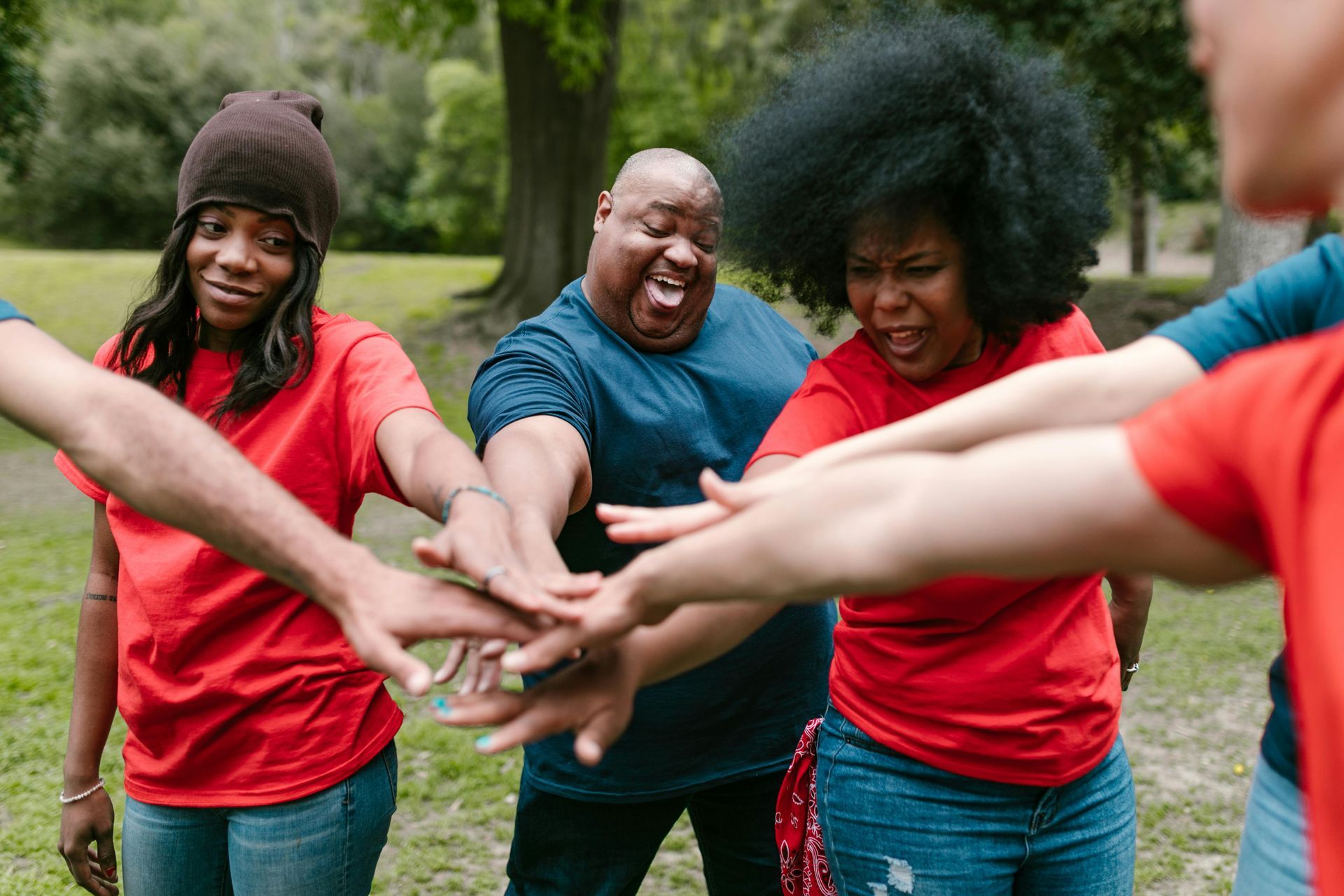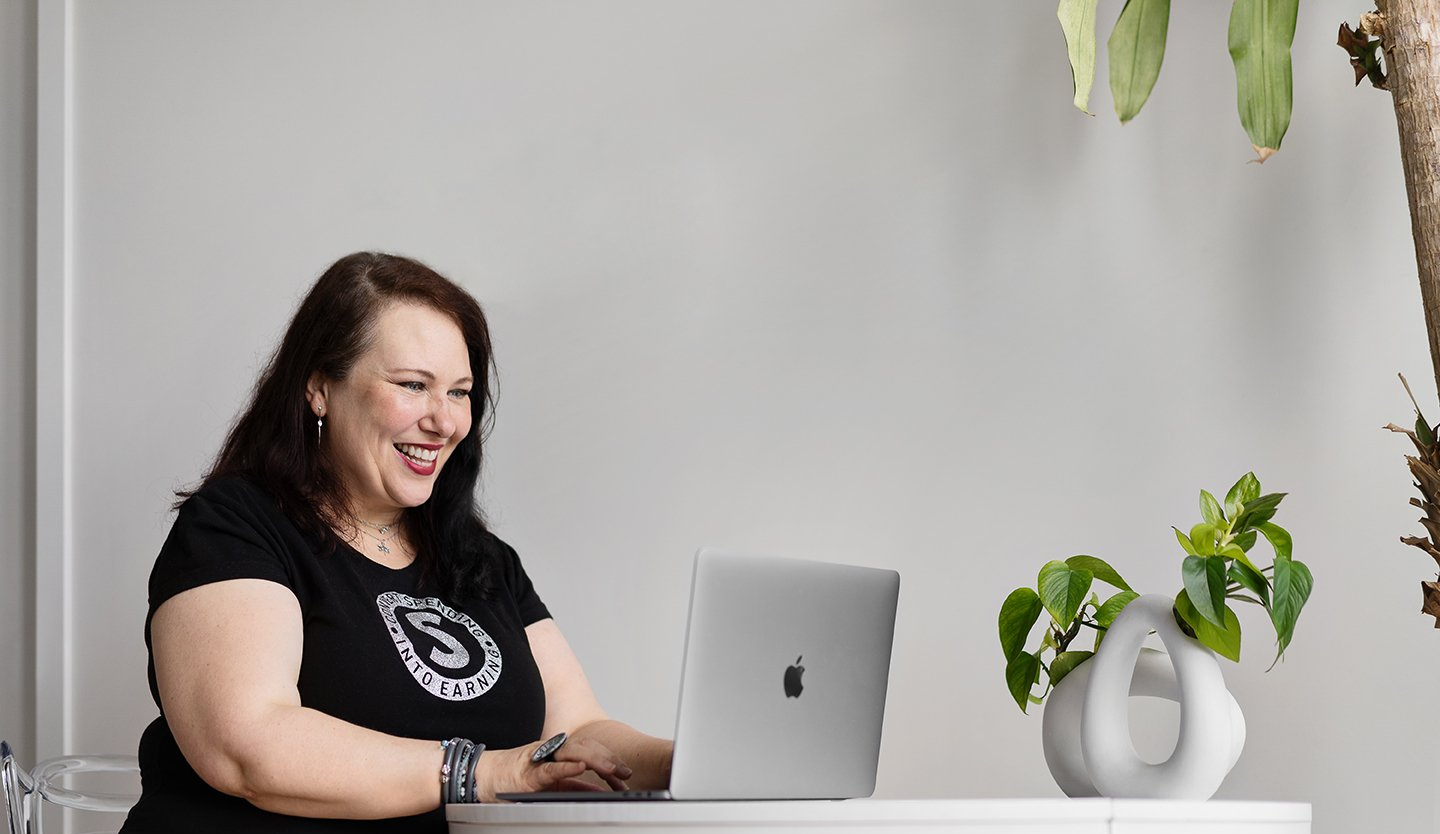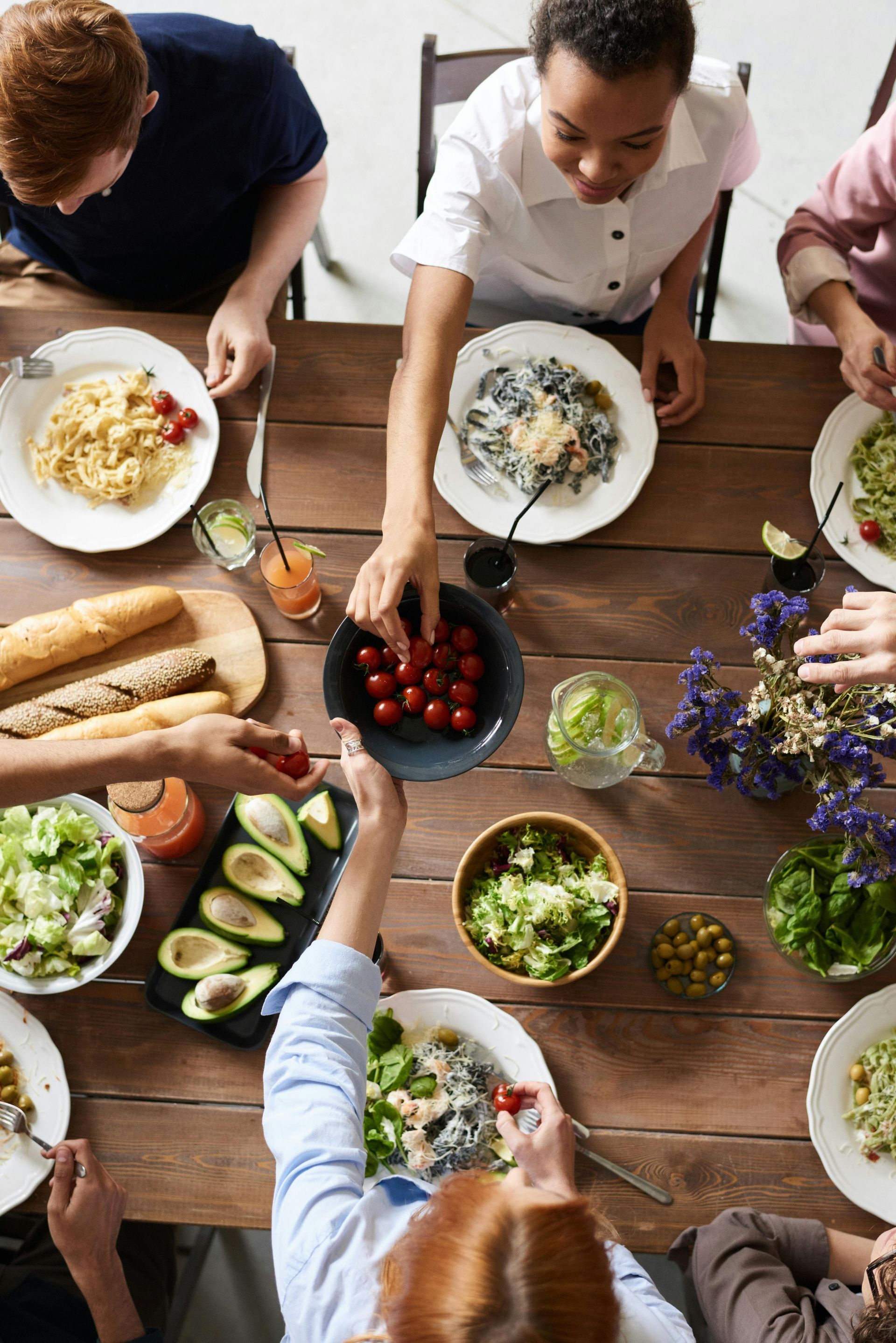MEDE8TR - Plate 54 with Dr. Virginia Colin from Northern VA

This week we meet Virginia L. Colin, Ph.D. is the founder of Colin Family Mediation Group LLC, a group of professional family mediators providing services throughout northern Virginia. A dedicated advocate for resolving family conflicts peacefully, outside of court, she is the co-author of The Guide to Low-Cost Divorce in Virginia. Dr. Colin has served as President of the Academy of Professional Family Mediators and is a Mentor Mediator certified by the Supreme Court of Virginia.
Recorded episodes from Dr. Colin’s internet talk radio show are still available online. Family Matters
During her first career, as a research psychologist, Dr, Colin wrote Human Attachment.
Dr. Colin is a graduate of Swarthmore College, Columbia University, and the University of Virginia.
Connect with PL8STORY:
Trista's PL8STORY Podcast Links
Nominate a plate - https://www.pl8story.com
Meet your host - https://www.iwokeupawesome.com
Subscribe to Trista's PL8STORY Podcast on Apple Podcast (http://bit.ly/itunespl8story), Google Podcast, Spotify, Amazon Podcast, Youtube or your favorite podcast app and access all published episodes
EPISODE TRANSCRIPT:
MEDE8TR
Trista, Host: [00:00:00]Welcome to this week's episode of Trista's PL8STORY (Plate Story) Podcast. I'm Trista Polo from iwokeupawesome.com and I am your host. Each week, we learn the story behind that vanity plate. You know, the one you saw driving down the road... what did it say? What did it mean? Why did they choose it?
Welcome to this week's episode. I have Virginia Colin from the state of Virginia. Her license plate is MEDE8TR, and it uses that eight (8) in the word. And you know how much I love that.
Welcome Virginia.
Virginia Colin: Thanks. It's good to be here.
Trista, Host: It's great to have you. So why don't you tell us why you chose MEDE8TR as your plate?
Virginia Colin: I want to educate the world about family mediation.
So any little thing that I think of, that's gonna just cue people to think about mediation more than they otherwise would, I like to do . it also sort of advertises that that is the service that I offer. [00:01:00]
Trista, Host: Okay, great. So let's just share what is a mediator for those that aren't familiar with the term.
Virginia Colin: Okay. A mediator's job is to facilitate negotiations. So I work with people who have something from a disagreement to a terrible conflict with each other. And need to get something decided or settled. And I help them have the difficult conversation in as constructive a way as they are able to do.
So it involves a lot of listening, a lot of asking questions to clarify things. A lot of sometimes rephrasing what someone said, so that it's easier for the other person to hear the thought. Mostly just helping people express themselves clearly in a [00:02:00] constructive way that allows for solutions and, and help them listen well to the other person's participation in that conversation.
That sounds really super important because if you're in a negotiation and I think of mediators as being used in divorce, you definitely need to make sure the person's hearing what you're saying and not how they're interpreting what you're saying, because there's usually like so much emotion attached to things that need a mediator,
Trista, Host: right.
Virginia Colin: Yeah, there's a lot of emotion. There's sometimes a lot of fear, sometimes a lot of anger. Sometimes an awful lot of sadness you know, lots of emotions that can get in the way of being able to think towards solutions.
Trista, Host: Wow. Now you've been a mediator for how long professionally?
Virginia Colin: Since 2009, so 11 years. My mom says I was a mediator when I was a little kid, my [00:03:00] two older sisters.
I don't know. Oh, right. Okay. Yeah. Sure. So why did you become a mediator professionally?
It's the result of a friend having a really hard time with a custody battle back in 1999. He had had custody of his kids for a little more than a year and a half.
And for a little more than a year and a half, his ex-wife had been bringing another motion and another motion and another motion to get the court to reconsider that decision. She sincerely believed that the kids would be much better off with her. He sincerely believed that the kids were much better off with him. And, you know, as the judge kept deciding to leave them with the dad. But it was never settled because the mom kept finding a way to come back and raise the issue again. So there was a hearing, you know, after that they've been at this for, I don't know, 20 months, maybe, you know, 40 to [00:04:00] $45,000 worth of legal fees for my friend and, and things not resolved.
And in this hearing, the judge ordered them to do what the guardian ad litem had recommended. A guardian ad litem is the lawyer who's supposed to represent the children. And she represents not necessarily what the children want, but what in her judgment is best for them. So the judge ordered the parents to do what the guardian ad litem recommended and neither parent thought it was a good plan.
Obviously they were likely to be back in court again. So I said to my friend you know, being a Quaker, I've learned some conflict resolution skills. Would you like to try a different approach? And he said, definitely. So I asked his ex-wife and she also said yes, which was in a way, very brave of her because I was not hiding the fact that he was my friend.
[00:05:00] Right. You know, she might've expected that I was going to be somehow on his side, a mediator is supposed to be impartial. So she said, yeah, let's, let's give it a try. And it turned out to be A, it was before I had my official training as a professional mediator and B, they were so, so angry at each other, even years after their divorce. And they didn't trust each other at all.
So it was one of the most difficult mediations I've ever done. But eventually it worked, they got to an agreement that, that they could both live with. And the ex-wife wrote it up as a consent order. The parents signed it. The judge signed off on it. I'm guessing the judge was saying keeping a huge sigh of relief at that point.
Seeing them so many times, but your judge signed off on it and they never went [00:06:00] back to court. So I kind of thought maybe this is the work I'm supposed to be doing. There can't be a whole lot of people who are willing to put themselves in the middle of this kind of hostility and help people find a solution.
That's going to be way better for their kids than what they've been doing up to now. And I survived that and it came out good for the kids. So
Trista, Host: That's wonderful. Now I have to ask you said something that I wanted clarification on. You said, because you have a Quaker background, you were sort of already trained. Can you tell me what that, how that connection works?
Virginia Colin: Quakers have a long history of advocating and working for peace and. One of the things you have to do to create peace and, and maintain [00:07:00] peace is have a way to handle conflicts. So a lot of Quakers learn those skills to be able to help other people with their interpersonal difficulties.
Trista, Host: Wow. That's great. I wasn't aware of that. I'm glad I asked. Now, like I said before, having a mediator is often something you'll do instead of an attorney in a divorce. Like that's how I know mediation. Why would you choose a mediator over an attorney for something official like child custody, divorce,
et cetera.
Virginia Colin: Well, the first thing I should say is that you don't have to do either. Or if you were my client, you could have a lawyer to give you advice and still participate in mediation where I'm the one helping you and your spouse or other family member, whoever your conflict is with. You know, I'd be the one helping you talk with each other, [00:08:00] but.
You know, you certainly could talk with a lawyer outside of sessions or phone them from the session for goodness sakes, if you really need to. And they'll pick up you know, get some advice when you need it. So it's, it's possible to have the best of both worlds. Some of my clients choose not to involve, involve lawyers at all because they don't think they need them.
They understand their kids. They understand their finances there. Able to come to an agreement about what's good for the kids and what's fair. And they don't feel like they need a lawyer to weigh in on that. You know, they know their kids or a lawyer does. And why should they ask a lawyer? But other clients do want to have the the added sense of security of, you know, I ran this by my lawyer and She, she said it looks okay.
And not setting myself up for a problem two years from now for, I, I did get my full share of the pension or, you know, whatever.
Yeah. [00:09:00] Okay, great. Client's choice. So you could use both. You could
okay. People who choose mediation instead of lawyers do it because they really want to keep things peaceful and inexpensive.
You know, a lawyer's job is to advocate vigorously for what he or she thinks is best for the client or for what the client wants. One of those varying a little bit with the lawyer. But they're supposed to fight hard for what the client wants or should get. And so if you hire two lawyers, you're setting yourselves up to give people an awful lot of money to help you fight with each other.
And there is some recognition of that reality in, in, in some parts of the world, there are a lot of people who know that now. And so they look for a mediator instead of two lawyers. Yeah.
Trista, Host: It's because you use one mediator for the two people, right? Instead of two [00:10:00] mediators, correct?
Yeah, ordinarily one, we have co mediators once in a while for one reason or another, but it's one mediator with two clients, occasionally more than two clients, but usually two clients.
Virginia Colin: And that has the added advantage that you're paying one professional for every hour of progress instead of paying two professionals. Right. Progress.
Trista, Host: That makes sense. Now, just like not all attorneys are created equal. I'm assuming not all mediators are created equal. If someone's looking to choose a mediator for a divorce or something else, what would you say are good criteria to choose from?
Virginia Colin: Hmm, that's a good question that I haven't thought about for a while.
You know, there are a lot of lawyers who are lawyers who are advocating for a client 90% of the time, but now, and then they put themselves in the role of mediator. So that's like, if [00:11:00] you want to have surgery, who do you want to hire? Somebody who does surgery all the time, or a general practitioner who cuts into somebody once in a while.
I would say look at what they say about their training. Do they say anything about certification? You know, in my state Virginia, the Supreme court has and the legislature and the Supreme court had set up and follow a good system for certifying mediators. So in my state, You can look and see whether the person is certified by the Supreme court and the people who are, have had good training and they really have experienced, and they've worked with mentors and the mentor has have ultimately concluded.
This person is ready to go out on her own and help people. Not, not all States have wonderful certification programs like that. So if somebody says he's a certified mediator, find out who certified him and what are that organization's [00:12:00] requirements for certifying somebody.
Trista, Host: Yeah. That's great. That makes sense.
Let's talk about what is marriage mediation and how does it benefit?
Virginia Colin: What very often happens in a marriage is that one person gets very frustrated, very unhappy, very angry. Something is really wrong. It's really bothering one of the people enough, so they know the marriage is in trouble and the other spouse is clueless. They think everything's fine. And they go on that way for one or two or three years until the one who's frustrated, can't stand it anymore and says we got to get divorced. And at that point they call the mediator. What I want people to know is if you don't wait till things are that bad, if you call the mediator, when one of you knows this marriage is in trouble, then we can help you figure out how to fix your marriage instead of helping you figure [00:13:00] out how to divide up your assets and co-parent your kids.
So, you know, if people would get good at saying "honey really mad at you right now. But listen, you got to know if we keep going the way we're going, we're not going to be able to stand it after what we're going to have to get divorced. I don't want to get divorced. Let's work with a mediator now and fix this."
Yes.
Trista, Host: Wow. That's amazing. So that actually is an opportunity that probably most people don't even realize is an option, right?
Virginia Colin: Yeah. Most people have never heard of marriage mediation. Some people have never yet heard of divorce mediation, but hardly anyone has heard of marriage mediation. Yes.
Trista, Host: What an amazing like interim step, if you're not...,
Virginia Colin: it's, it's different from marriage counseling, you know, if you have something that, you know, gotten very heavy, [00:14:00] emotional weight and you need to talk to a therapist, then you want a marriage counselor, not a mediator.
So for example, if you recently found out that your spouse has been cheating on you and you're incredibly upset, you probably want a marriage counselor, not a marriage mediator. If your frustrations are about one being too lenient with the kids and the other being too strict, or one being a spendthrift and the other being a saver, you know, if it's choices that you make about how you handle your kids and how you handle the family's money that we can meet. We can help you talk with each other and figure out a plan that both of you can sign on to. But the heavy emotional stuff, you work with a therapist.
Trista, Host: So in other words, my husband and I have this disagreement of what is guest ready?
You know, like it's clean enough for guests to come over. That'd probably be a good marriage, mediation stuff.
[00:15:00] He will be annoyed when he hears this episode. When he hears that I said that. So that's great. Let me just ask the question because I had it in my notes and I didn't ask the question. Right. You don't have to answer it cause you already did and I'll put it later. In the right place. So mediation is usually used for divorce.
Can it ever be used for marriage now? I'm glad you mentioned the fact that it is different from therapy. And I think that that's an important distinction.
Excuse me.
So, can you give us some advice? Would it be better to start in therapy or start in mediation? If I'm trying to decide what to do to save my marriage?
I think that's a case [00:16:00] by case judgment and again, they're not mutually exclusive. You could start marriage counseling and marriage mediation at the same time.
If you thought that that made sense. If you're feeling all caught up in distressing emotions, you might reasonably decide. Let me work with a therapist first and get my feelings sorted out if possible, get myself calmed down and then. Meet with a mediator to work on. Basically you rewriting some of the rules of your marriage.
Oh, okay. I
Virginia Colin: like that marriages have rules. They're not usually. Written, but right.
Agreements, rules, right? Standards of practice. That's a good distinction. So if I'm looking to rewrite or make agreements on the standards of practice, the rules of engagement, the ways we do [00:17:00] things, then that's for mediation.
Trista, Host: And if, like you said before, if emotions are really heightened, that's a better place for therapy. All right. That makes sense. Now, there are other kinds of mediation besides marriage that you do. Can you share other ways that people could use mediation?
Virginia Colin: Yeah. The, the five family mediators in my group practice all help with any kind of important disagreement or actual conflict in a family that the family is unable to resolve on their own. So we can help with inheritance disputes. We can help with family decisions about how to take care of an elderly relative. You know, if you've got. Your older brother thinks that mom should be institutionalized.
And your older sister thinks that mom would hate [00:18:00] that it's the worst thing you could do to work. And you can't figure out on your own how you're going to come to an agreement about how to best take care of mom. Then you can involve a mediator. Sometimes family business, succession issues come up and a mediator can help with that.
We have helped some families where one or both parents and one adult child had been estranged from each other for 10 or 15 or 20 years. And now at least one of them wants to make an attempt to reach out and reconnect. We help with that. How parents are gonna handle their teenagers. We help with that.
Wow, how teenagers are going to tolerate their parents
More
Trista, Host: rules and standards of practice conversations in there. Right. So really,
Virginia Colin: Almost any kind of family problem that doesn't involve a dangerous [00:19:00] level of violence. You know, anything that could be talked through and worked out a mediator can help you have the really hard conversations to have.
Trista, Host: That's wonderful. I mean, what a nice tool to have for the stuff that we tend to just deal with the best we can. And I think that the way a family is raised, the relationships they have, when these things come up can really impact how well they can manage it and how strong the relationships are when the managing of it is over.
So the mediation can actually save the family relationships while they're going through really difficult things and decisions and next steps. That's awesome. Yeah, it is. But now you're not just a mediator.
You wrote a book on that has to do with divorce.
Virginia Colin: I did. I wrote the guide to low-cost divorce in [00:20:00] Virginia. I have.
So the people who are actually watching this can see there it is. Oh, awesome. It's a small book. But it tells you, it has a lot of information about taking care of yourself and taking care of your kids during the transition time and information about what records together, information about how to approach your soon to be ex spouse to, you know, avoid causing unnecessary problems and, you know, keep things on as constructive basis as you can. And then it tells you how the laws work for divorce in Virginia. Like how do you decide what's what's marital property that belongs to both of you and what separate property that belongs to only one of you and doesn't have to be divided. And how do you make decisions about spousal support?
How do you make decisions about child support? You know, kind of [00:21:00] what are, what, what does the law require? What does the law allow? And then within that framework, how are you going to decide what's
Trista, Host: fair. Okay. So it's sort of a divorce DIY for the statements.
Virginia Colin: It really is. It's I wrote it for people who want to handle their divorces mostly as a do it yourself project and people, some people can do that, not everyone, but some people can do that.
Trista, Host: Yeah. So you could do it without attorneys. You can. Yeah. Wow.
Virginia Colin: Actually, my book that I've been taking credit for here is only half my book. The other half belongs to Rebecca Martin. And she wrote the first book in the series, which was how to get divorced for free in California.
Well,I did use a lot of her material about gathering records and not making your spouse mad over something that's not that [00:22:00] important. And what do you do when your preschooler is, you know, acting out and, and clearly being affected by the emotions of the moment and probably needs a therapist?
What on earth do you do? You know, so I took a lot of her material about how you live through it, but then took out all the stuff about the legal steps in California, put in the information about the legal steps in Virginia.
Trista, Host: That's great. So you are also a dog mom, is that right? I am.
Virginia Colin: Yeah. Yeah. I have two dogs who are my own and from time to time, we have one or more puppies in foster care.
Trista, Host: Oh, now when you say puppies, are you saying that affectionately or are you actually foster tiny puppies?
Actually tiny puppies. I had five tiny puppies in my house for a couple of weeks in August. And next weekend I'm getting three more.
That's exciting. And puppies [00:23:00] are adorable, but there are a lot of work. So we've done some fostering.
We actually, I never knew about fostering. I didn't even know it was a thing people did, but my dog, Bella, she was fostered. I didn't even know this was something that people did until I learned about it through adopting Bella. And it's quite a community, the fostering community.
We did it for a while as a way to give back and pay forward. What had been done for our dog. Unfortunately, Bella is adverse to other dogs getting affection. Oh, and a lot of foster situations they really need didn't know that people love them to get them acclimated to humans so they can be part of a family.
So it didn't work for us to foster, unfortunately, but we did it for a while and we loved doing it. Tell us about your experience fostering puppies.
Virginia Colin: Well, when I did one at a time, each one was [00:24:00] different from the last one. You know, there was one who climbed all over everything on the back porch the first day he got there. There was one who on arrival already seemed to know something about potty training and couldn't find the right place on the porch so it climbed up on a big pot we had with dirt in it for plants to grow and pooped in there, which I thought was, you know, very advanced.
Trista, Host: Yes, I would agree.
Virginia Colin: You know, some of them are really shy. Some of them are really bouncy. Some of them play. Altogether too aggressively because that could be dangerous with my dog.
And so then I have to keep them separated. And some of them are very timid. But having five at the same time was a new experience. Hey, they were much smaller, you know, cause they were, they were only six weeks old when I got them and they were, it was a small breed mix. So [00:25:00] maybe the size of kittens or maybe, maybe small cats.
But they were adorable and they all suck everything together. Like, they'd get a tug of war toy and there'd be four different dogs pulling on it at the same time or they chase each other or climb up on the blocks that I gave them so that they would have something interesting to do or, you know, grab a newspaper and treat it like a tug of war toy and shred it, but, you know, and then they'd all sleep at the same time and I'll get up and eat at the same time. And, you know, they had their cycle that they went through and they were convenient.
Yeah. Well, yeah, they'd been together their whole lives. So my guess that's just the way it works.
Trista, Host: That's awesome.
Virginia Colin: And it's kind of for the benefit of our dogs, not just for the benefit of whoever's going to adopt the new dogs, because our [00:26:00] dogs are young enough that it's good for them to have somebody who get them to play, but old enough, so they don't spontaneously just play with each other a lot.
So it's, it's fun for them to have new puppy in the house from time to
time. That's nice. I think that's great. You know, there's so many reasons why people foster and I think that all the ones that you mentioned as the reasons why you do it are probably very common. So I appreciate you sharing a little bit about fostering and you shine the light on two very cool topics today.
Trista, Host: Fostering dogs and mediation and all the benefits of it. So that's great. So I always like to turn the tables before we wrap up and give you an opportunity to ask me one question. So what's one question you have for me.
Virginia Colin: Can you think of a time in your [00:27:00] life when there was an important disagreement with someone that was really hard to resolve and somebody acted as your mediator and helped you figure it out?
That's a great question. Trista, Host: I do really try to be the kind of person that leaves every relationship and every communication whole, without that anger and upset and, and misunderstanding. I tend to be the person in the middle helping resolve as opposed to needing that support. But I know more about mediation I know that that's actually a service service, a a really great resource to have.
Virginia Colin: I want to mention that all I do is family mediation, but professional mediators help with a lot of other kinds of situations, workplace conflicts, landlord, [00:28:00] tenant disputes, civil suits.
You know there are other mediators who help with those kinds of things. And they're also really is a lot of informal mediation that goes on in the world. People who don't have professional training, but they noticed that two of the friends in their circle are really having huge problem with each other and it's affecting the rest of the group and they don't want this to keep on going.
So they try to serve as mediator between the two people who are fighting with each other. And sometimes, you know, just a good friend can do that successfully.
Trista, Host: Yeah, for sure.
You know, some folks need a pro, but not everybody.
Well, it's nice to know that mediation is available for all sorts of opportunities to resolve something.
I think that we often feel like we've just got to figure it out on our own and maybe we're going to get a good resolution and maybe we're not, but by having a third party involved, you can really have a [00:29:00] perspective that's bigger than the two people. And I think that's really crucial.
Virginia Colin: Yeah. A lot of people muddle through things that they could get a little help with.
Hmm, I guess I haven't really mentioned it before now, but another thing that happens in mediation is that people become creative. They think of new ideas that neither of them had thought of before. Right.
And, you know, work things out.
Trista, Host: Well, it's good, really amazing Virginia, getting to know you and learning about the story behind your license plate MEDE8TR, and a lot of really wonderful gems came out of just asking you what's the story behind your plate.
So I really appreciate you sharing everything you shared today.
Virginia Colin: Well, it's been fun. Thanks for inviting me.
Trista, Host: Thank you for joining us for this week's episode of Trista's PL8STORY podcast. Please subscribe to Trista's PL8STORY podcast to get the story behind all those vanity plates, driving with you on the road. And if you would [00:30:00] like to nominate the owner of a license plate, including you... Or visit any of our partners and sponsors come and see us www.pl8story.com. That's P L number eight story.com and give us the details.
If you enjoyed this episode, please drop a review and give us a share. I'm Trista Polo wishing you well on the road to your next adventure.
I Woke Up Awesome Blog











